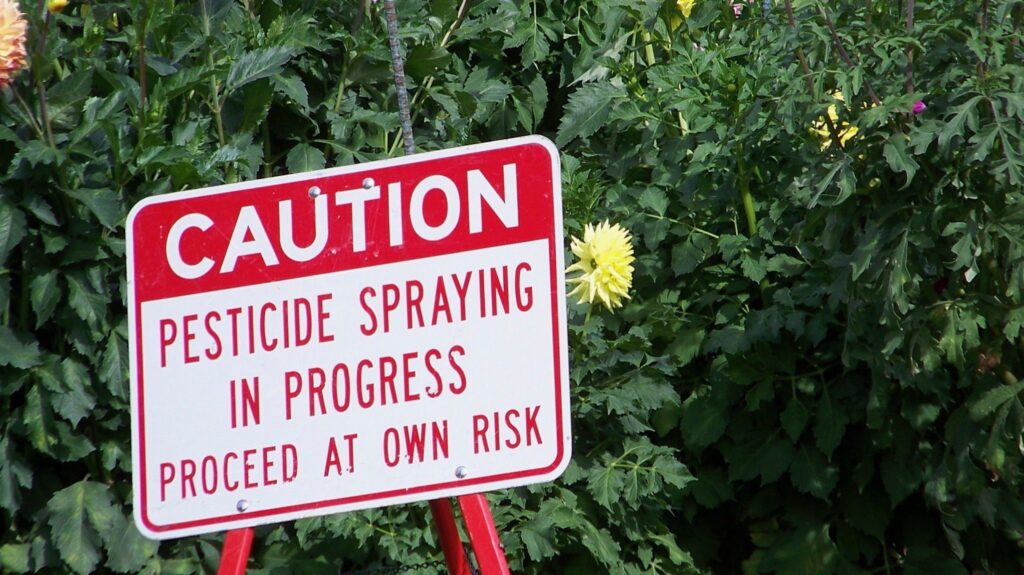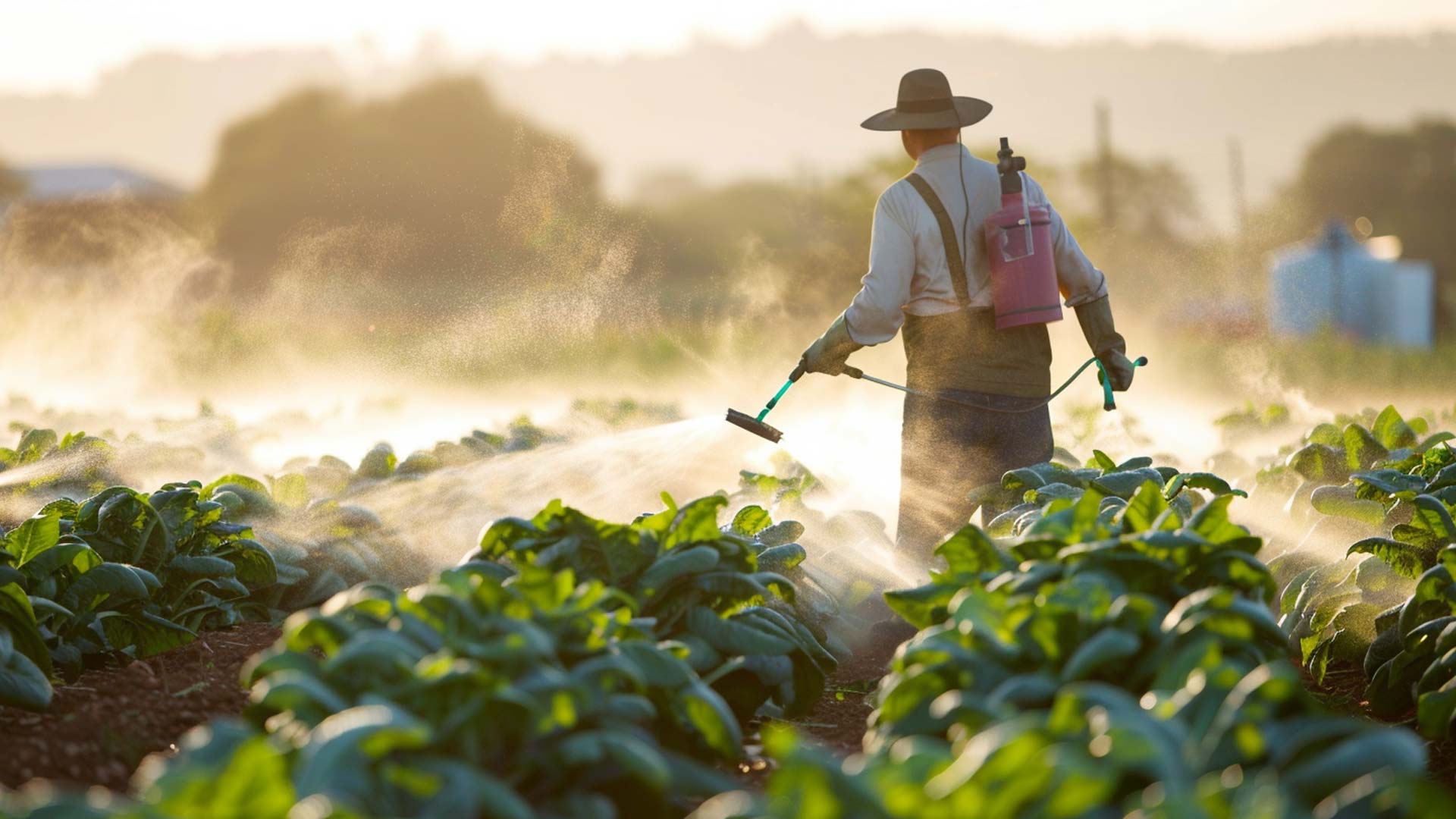Food & Climate
A massive battle is being waged by pesticide companies, with armies of lobbyists from associations, farmers and even golf course supervisors, to prevent state legislation banning certain types of pesticides containing containing per- and polyfluoroalkyl substances (PFAS), long-lasting chemicals linked to serious health risks including cancer, liver damage and reproductive effects.
When Maine lawmakers turned their attention to tackling pesticides as a source of PFAS, they encountered new opposition. Between 2021 and 2024, CropLife America and Responsible Industry for a Sound Environment (RISE), the pesticide industry’s trade organizations, paid lobbyists in the state more than $100,000 to work on multiple bills, including PFAS regulations, according a report seen by “Food & Climate” platform.
At the same time, RISE alerted Maine-based members of what it calls its “grassroots network.” To create that network, RISE recruits individuals who make, sell, or are heavily invested in the use of pesticides (like golf course superintendents and landscapers) around the country, provides trainings and messaging, and then sends advocacy alerts when laws are introduced in a given state.
Pesticides in Maine
While Maine passed the country’s first laws requiring companies to disclose whether pesticides they sell contain PFAS and to eventually phase out those that do, the fight continues. After the trade groups pushed for delays in the implementation of the law, legislators in 2023 delayed the phaseout of PFAS in pesticides by two years. Then, in 2024, based on Maine lobbying records, CropLife and RISE advocated for a bill to exempt agriculture entirely from the requirements. Although it initially failed, lawmakers expect it will be introduced again next year.
In 2023 testimony submitted to Maine legislators supporting rollbacks to the regulations on PFAS in pesticides, Karen Reardon, vice president of public affairs for RISE, argued that the state’s PFAS definition is overly broad and lacks a scientific basis. She also said companies were worried that submitting affidavits on PFAS in their products could expose their trade secrets, and state regulators needed more time to develop a system that would adequately protect “confidential business information.”
Some farm groups, including the Maine Potato Board and Maine Farm Bureau, also oppose the rules for PFAS in pesticides and have called for the agricultural exemption, citing the fact that losing access to certain pesticides could hurt the state’s farmers. In arguing for an exemption for agriculture last March, Donald Flannery, then the executive director of the Maine Potato Board, cited the economic value Maine’s farmers bring to the state. He noted that pesticides used in Maine “are all approved and licensed by EPA,” and said that while he acknowledged the need to clean up PFAS pollution, business and industry should be allowed to move forward in the meantime.

If pesticides are not exempt from PFAS regulations, he said, “there is risk of losing products, which will have a negative impact on our ability to grow and protect our crops.”
In Maryland
The battle over regulating PFAS in pesticides in Maine looks a lot like another heating up in Maryland. In fact, it illustrates a scenario repeated in states nationwide each year, where the pesticide industry activates a well-worn playbook in an effort to stop restrictions on pesticide use that are intended to address a broad range of impacts.
A few states to the south, Maryland has also been trying to stay ahead of the game, and the Maryland Pesticide Education Network (MPEN) is central to that effort. MPEN has been one of the most active pesticide watchdog groups in the country for three decades, and over the last few years, they turned their attention to PFAS.
PFAS expert Linda Birnbaum is a toxicologist who spent 20 years at the EPA and directed the National Institute of Environmental Health Sciences. As she put it during MPEN’s annual conference in November, “You give me a physiological system, and it’s likely there will be evidence that PFAS disrupt it,” she said, pointing to associated harms including kidney cancer, liver toxicity, high cholesterol, and birth defects.
Even so, Ruth Berlin, MPEN’s executive director, was not surprised when CropLife and RISE showed up earlier this year, after Delegate Sheila Ruth introduced a state law to ban selling pesticides that contain PFAS as an active ingredient starting in June 2025.
Berlin said that RISE representatives came with many of the same talking points they’d used to fight previous pesticide restrictions. For example, if lawmakers take away the use of any pesticide, “they’re going to destroy farming. They’re going to destroy public health. And it’s safe because EPA vets these pesticides.”
CropLife America is a well-known trade association that advances the interests of the farm chemical giants it represents. RISE presents itself as a separate organization that represents the “specialty” pesticide industry and tends to work on the off-farm side of things. They operate under the same 501(c)(6) and share a D.C. address. They hold joint conferences and share lobbyists.

The Colorado bill failed to gain traction, and RISE touted its role in its 2024 annual report: “With mounting political pressure for local control, 36 pesticide applicators showed up to testify in person against the bill. Leveraging these voices, our in-state lobbyist managed the vote count throughout the session, ultimately preventing a full floor vote in both legislative chambers”, according to “Civil Eats”.

